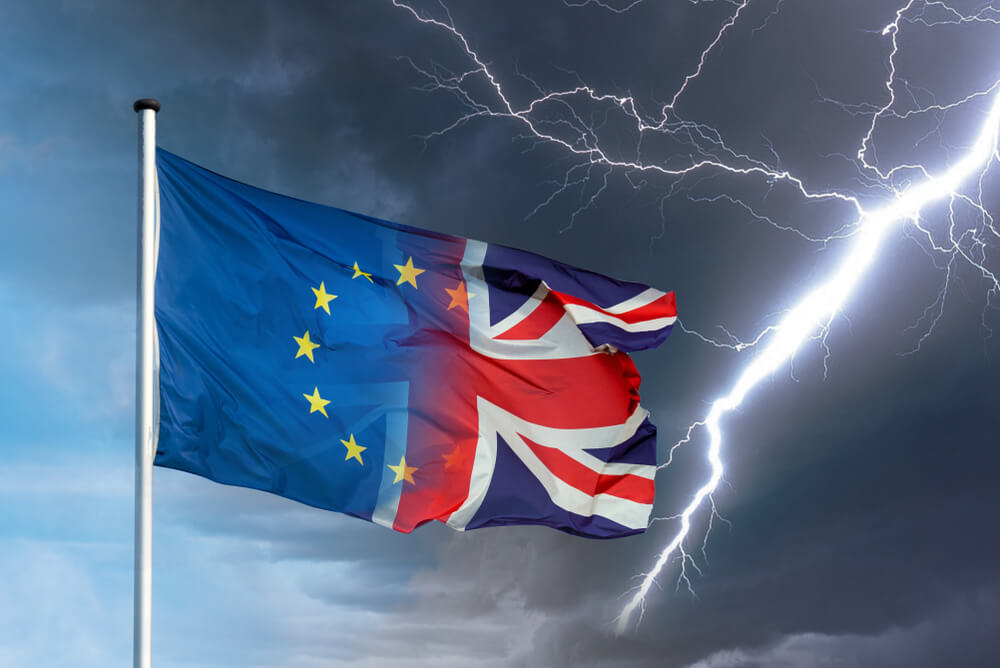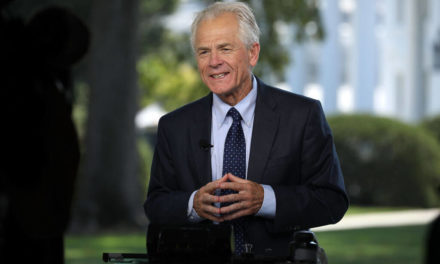Britain’s European Union partners on Monday ratcheted up political pressure on Prime Minister Theresa May amid signs that some progress is being made in Brexit negotiations.
Britain leaves the EU on March 29 — the first country ever to do so — but a deal must be sealed in the coming weeks to leave enough time for the U.K. Parliament and European Parliament to sign off. May faces increasing domestic pressure over her proposals for an agreement following the resignation of another government minister last week.
No Brexit breakthrough was announced Monday after talks between European affairs ministers, but the two sides are locked in technical negotiations to try to bridge the final gaps in a move laden with heavy political and economic consequences.
“Clearly this is a very important week for Brexit negotiations,” Irish Foreign Minister Simon Coveney told reporters after the meeting in Brussels. “The two negotiating teams have really intensified their engagement … There is still clearly work to do.”
The main obstacle to an agreement is how to keep goods flowing smoothly across the border between EU country Ireland and Northern Ireland in the U.K.
Both sides have committed to avoid a “hard border” with costly and time-consuming checks that would hamper business. Any new customs posts on the border could also re-ignite lingering sectarian tensions.
May’s spokesman said talks between U.K. and EU negotiators ran until the early hours of Monday morning and would resume Tuesday. James Slack said there had been “good progress” but there were “substantial issues still to overcome” on the issue of the Irish border. Still, he said Britain is sticking to its ambition of finalizing a Brexit deal “in the autumn.”
And Martin Callanan, Britain’s Minister of State at the Department for Exiting the European Union said everybody is “straining every sinew to make sure that we get a deal but we have to get a deal that is right for the U.K., right for the EU and one that would be acceptable to the U.K. parliament.”
EU Brexit negotiator Michel Barnier did not speak to reporters Monday and a planned news conference with him was cancelled.
Instead, EU headquarters issued a short statement saying that Barnier explained to the ministers that “intense negotiating efforts continue, but an agreement has not been reached yet.”
Earlier, France’s EU affairs minister, Nathalie Loiseau, stepped up pressure on May. “The ball is in the British court. It is a question of a British political decision,” she said.
Belgian Foreign Minister Didier Reynders agreed, saying that the EU is “waiting for new news from London.”
“We have time but not so much,” he added.
The EU is awaiting Barnier’s signal as to whether sufficient progress has been made to call an EU summit to seal a deal. Rumors have swirled of a possible top-level meeting at the end of November.
Signs have emerged in recent days that some progress is being made behind the scenes, but all parties have remained tight-lipped about the developments, given the politically charged atmosphere.
Austrian EU affairs minister, Gernot Bluemel — whose country holds the EU’s rotating presidency until the end of the year — said “there is a certain dynamic in the negotiations, but it is too early to say how we are going to proceed on that.”
On Thursday, Finnish Prime Minister Juha Sipila said that major progress was likely “within a week,” based on his Brexit discussions with several EU leaders who visited Helsinki.
“We’re going through crucial days now. We’re very close now,” Sipila said.
In Britain, pro-Brexit and pro-EU politicians alike are warning May that the deal she seeks is likely to be shot down by Parliament.
Boris Johnson, a staunch Brexit supporter, wrote in a column for Monday’s Daily Telegraph that May’s plan to adhere closely to EU regulations in return for a trade deal and an open Irish border amounts to “total surrender” to the bloc.
The proposed terms are scarcely more popular with advocates of continued EU membership.
Former Education Secretary Justine Greening on Monday called May’s proposals the “worst of all worlds,” and said the public should be allowed to vote on Britain’s departure again.
“We should be planning as to how we can put this final say on Brexit in the hands of the British people,” Greening told the BBC.
Johnson’s younger brother, Jo Johnson, resigned last week backing calls for a second referendum on whether the country should leave the EU. May has consistently rejected the idea of another nationwide vote on Brexit.
© The Associated Press. All rights reserved.




